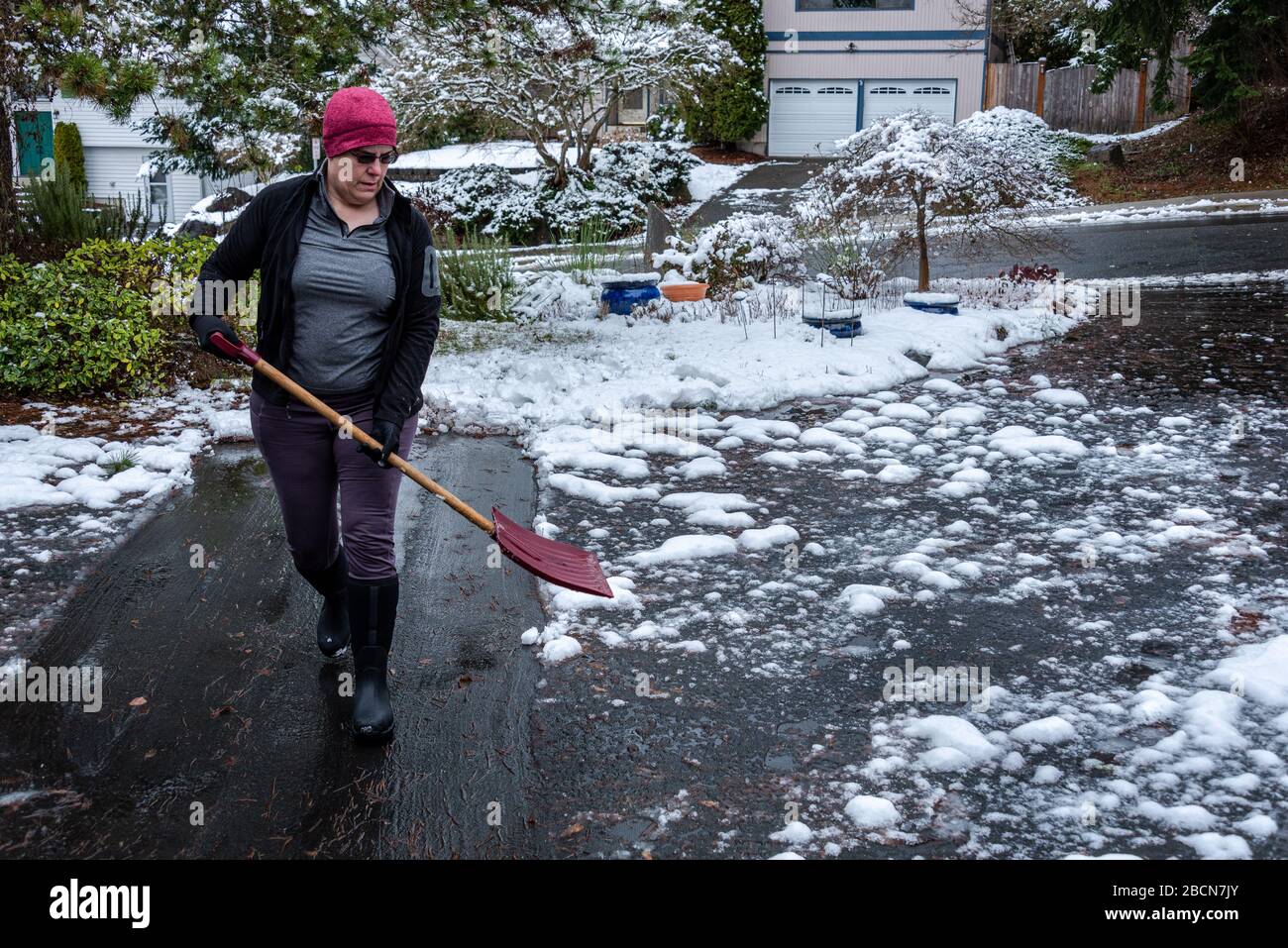Different seasons of the year can be very harsh in many parts of the world especially winter season. It can also be very devastating for all outdoor structures and surfaces. Including your asphalt driveway, everything that is exposed to the weather is at risk. As durable as quality asphalt pavement may be, it can lose much of its finish in winter. So, what can you do to protect your driveway this winter season?
Driveways for homes and commercial properties play vital roles. All that snow melting and other things that you do in winter seasons can make them look and feel rough. However, when you know how to care for your driveway, it will last you many decades. A well-laid quality asphalt paving should last up to three decades. So, here’s what you can do for winter protection:
Do Crack Filling and Sealcoat Before Winter Starts
If there is still time, make sure to get crack filling done before the winter. Cracks in the driveway are perfect grooves for snow or rainwater to rest in. From there, all this water will get below the surface and into the adhesive layers where it will cause damage.
So, get your asphalt paving contractor to provide a good crack filling before the winter. Also, you surely want a sealcoat every 3-5 years too. Seal coats are inexpensive ways to add a layer of protection to your asphalt pavement. These can be finished quickly too.
Additionally, a fresh sealcoat makes snow melt faster without letting the water settle into the underlayers. It also makes your driveway look much neater bringing back that darker elegant finish.
Clear the Entire Surface from Debris Before Snow Comes Down
If you want your driveway to emerge in good shape after the snow melts away, it is important to set it up nicely too. Make sure to clean the asphalt pavement deeply before the snow starts to come down. Also, consider a professional cleaning solution for your driveway if possible.
There are two main reasons to require cleaning. Firstly, it will reveal any problems like cracks and potholes that you can repair quickly. Secondly, it will ensure you take off all large pieces of debris that will not let them freeze and damage the surface.
Large debris can cause damage to the asphalt surface when snow plows are used. So, this is why removing debris of all kinds is important before winter sets in.
Look Out for and Clear Pooling Water
Pooling water is absolutely not good for any kind of pavement surface. What it does is that it allows water to rest for longer periods of time on the surface and then trickle down into inner adhesive layers. This is where it can damage the adhesive compromising the structural integrity.
The old rule with professionals is that if you see pooling water now, you will see potholes later. And that is true as well. Pooling water happens if the water runoff points get clogged or there are indentations on the surface. In both cases, fix whatever needs to be done and clear pooling water.
Clear off any pooling water and unclog water runoffs quickly. Make sure to get your driveway balanced out if there are some kinds of depressions in it anywhere on the surface.
Shovel Snow Regularly If Required
Shoveling snow is a tough task in winter. No doubt about that. Yet, this is what you need to do regularly when the snow season is in full swing. Snow melts into salty water that leaks down into the adhesive layers on your driveway.
Shoveling is the safest method of removing snow off a driveway. You need to do it before the melting starts as well. Plow snow removal is the most efficient way. However, if there are any cracks still left, be careful around them. You don’t want to scrap off the top surface while shoveling.
Also, you will have the option to hire a snow removal service as well. Ask them to be careful around cracks as well if that is the selected option.
Consider Salting and Other Options
Salting your driveway to melt snow quicker is always an option that comes to mind. However, there are some drawbacks to it as well. Mainly, this salt can get into water runoff where it can affect plant and animal life in local waterways.
Increased salinity in rivers, lakes, ponds, and drinking water is often a direct result of salting roadways. So, if your driveway connects to waterways, make sure to consider salting it. The shoveling and plow method will be the best option in most cases due to this very reason.
Often, a mix of sand and salt is good for melting snow as well. It also helps with improved traction for vehicles and has very little impact on the environment too.
Fix and Repair Potholes Quickly
Potholes are absolutely bad for any driveway. Especially, during the winter season, if there are potholes in the asphalt pavement, it will mean inner layers are exposed to rainwater and melting snow. So, get potholes repaired by a good driveway paving company.
Make sure to get proper pothole filling and then get it properly repaired. Winter seasons are the worst for potholes spreading fast and destroying the whole surface of the asphalt pavement. An expert will prepare a cold-mix asphalt that is designed specifically for your local weather conditions.
This pothole repair is a perfect opportunity to enhance the years of your driveway life. Couple that with crack filling and seal coat and your driveway should last decades.

